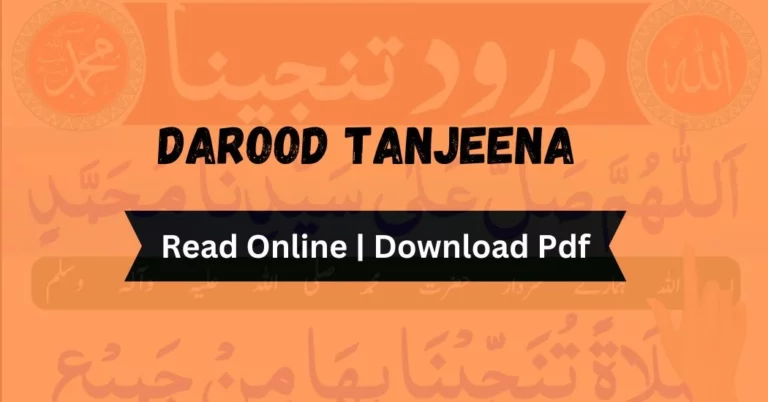What is Durood e Ibrahim?
Darood E Ibrahimi, also known as Durood Ibrahim in the Islamic tradition, is a revered form of prayer that highlights the significance of sending blessings upon the Prophet Muhammad (Peace Be Upon Him). We regard this specific salutation as not just a means of honoring the last prophet of Islam but also as a practice deeply rooted in Quranic teachings.
When we recite Darood E Ibrahimi during our prayers, especially during the Tashahhud of Salah, we are participating in a universal act of respect and love for the Prophet, as instructed by Allah and demonstrated by His angels.
The virtues of Darood E Ibrahimi are widely referenced in various Hadiths, illustrating its importance in seeking the intercession of the Prophet Muhammad (Peace Be Upon Him) and in obtaining Allah’s mercy and blessings.
It is believed that consistent recitation brings a person closer to the Prophet on the Day of Judgment and multiplying the prayers one sends to him is reciprocated with an increase in blessings from Allah. With these virtues in mind, we understand that incorporating Darood E Ibrahimi into our daily routines is not only a religious recommendation but also a means to enhance our spiritual well-being.
While many of us are familiar with Darood E Ibrahimi in Arabic, finding appropriate translations in English and Urdu ensures that the essence of the prayer is understood and can be appreciated by a broader audience. This inclusive approach allows us to resonate with the meaning and significance of the words we are reciting, thereby enriching our prayer experience and spiritual connection, regardless of linguistic background.
Origins and Significance of Darood E Ibrahimi
Within the Islamic tradition, Darood E Ibrahimi is a deeply respected prayer for Prophet Muhammad, embodying a rich historical legacy and a profound spiritual role in our faith.
Historical Background
The practice of reciting Darood, known in Arabic as Salawat, dates back to the time of Prophet Muhammad himself. The term “Darood E Ibrahimi” refers to a specific prayer formula seeking blessings for the Prophet, which we often recite during the Tashahhud part of our Salah (daily prayers). We find roots of this prayer in the Holy Quran, where Allah commands us to honor the Prophet, and we see this embodied in Durood E Ibrahimi as an expression of our love and respect for him.
Spiritual Importance
As Muslims, we hold the belief that sending blessings upon the Prophet Muhammad is a means of drawing closer to Allah and earning His divine favor. Darood E Ibrahimi holds a special place in our devotional practices because it is recited in every prayer session, making it one of the most frequently uttered supplications. We attribute many spiritual virtues to this act, including the cleansing of our hearts and the forging of a stronger connection with the Prophet Muhammad.
Reciting Darood E Ibrahimi
When we recite Darood E Ibrahimi, we are engaging in a practice highly revered and recommended in Islamic tradition. This specific Darood is a way for us to send blessings upon the Prophet Muhammad (PBUH) and is a common addition to our daily prayers, often recited after the Tashahhud, before completing the prayer.
Transliteration in Roman English
Allahumma Salli ‘ala Muhammadin wa ‘ala aali Muhammadin, kamaa sallaita ‘ala Ibrahima wa ‘ala aali Ibrahima, innaka hameedum majeed. Allahumma Baarik ‘ala Muhammadin wa ‘ala aali Muhammadin, kamaa baarakta ‘ala Ibrahima wa ‘ala aali Ibrahima, innaka hameedum majeed.
Translation in Urdu
اے اللہ! جیسے تُو نے ابراہیم علیہ السّلام اور اُن کی آل پر رحمت فرمائی، اُسی طرح محمد ﷺ اور اُن کی آل پر رحمت فرما، بیشک تو قابلِ حمد، بزرگی والا ہے۔ اے اللہ! جیسے تُو نے ابراہیم علیہ السّلام اور اُن کی آل کو برکت دی، اُسی طرح محمد ﷺ اور اُن کی آل کو برکت دے، بیشک تو قابلِ حمد، بزرگی والا ہے۔
Benefits of Darood E Ibrahimi
Reciting Darood E Ibrahimi brings with it numerous benefits. By integrating this prayer into our daily lives, we seek to enhance our spiritual well-being and express deep reverence for the Prophet Muhammad (PBUH). One of the key benefits includes a closer bond with the Prophet (PBUH), as our consistent recitation reflects our affection and respect towards him, potentially leading to spiritual closeness to the Prophet in the afterlife.
Another significant benefit is the multiplication of blessings. We believe that for every Darood E Ibrahimi we recite, Allah sends down multiple blessings upon us, which could translate into spiritual rewards and elevation in status. This practice also serves as a reminder to remain dedicated and grateful to our faith.
- Eradication of Sins: It’s stated that reciting Darood E Ibrahimi leads to the forgiveness of sins. The more often we recite, the more we are cleansed of our minor wrongdoings.
- Increase in Virtue: Each recitation is thought to raise our spiritual status, bringing us closer to divine virtues and the exemplar life of the Prophet (PBUH).
Moreover, this Darood holds significance in Islamic ritual; it’s usually recited during various acts of worship, such as daily prayers and on special occasions like during the Friday prayer service. Lastly, it connects us with a tradition that has been followed for centuries, strengthening our sense of belonging to a global Muslim community. Through the recitation of Darood E Ibrahimi, we not only pay homage to the Prophet (PBUH) but also imbue our lives with positivity and divine grace.


